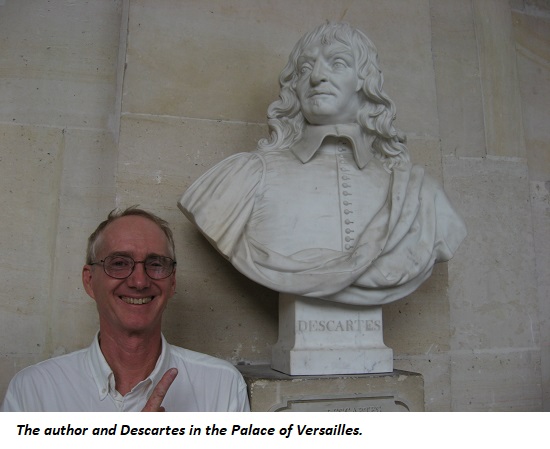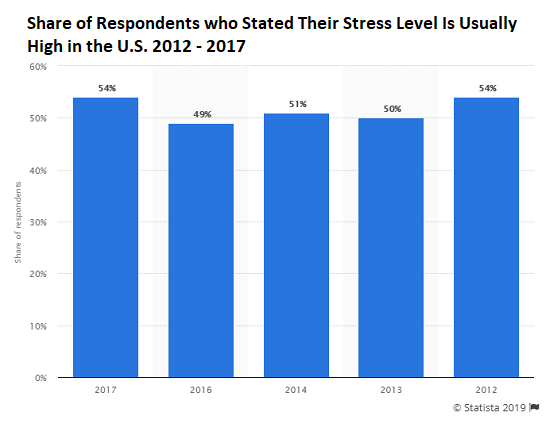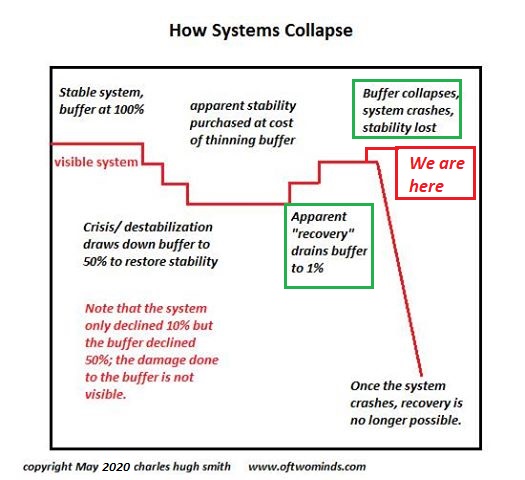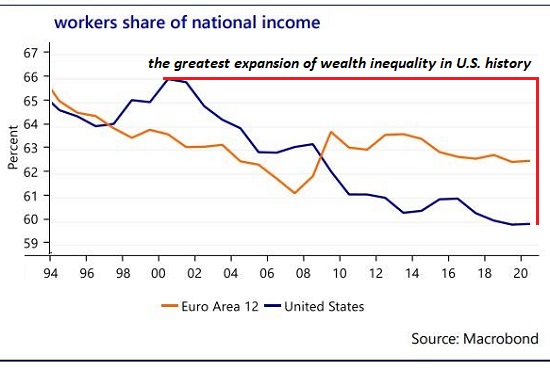Anyone claiming they can project the trajectory of the U.S. and global economy is deluding themselves. Normalcy depends entirely on everyday life being predictable. To be predictable, life must be stable, which means that there is a high level of certainty in every aspect of life. The world has entered an era of profound uncertainty, an uncertainty that will only increase as self-reinforcing feedbacks strengthen disrupting dynamics and perverse incentives drive unintended consequences. It may be more accurate to say that we’ve entered the Empire of Uncertainty, an empire of ambiguous borders and treacherous topology. A key driver of uncertainty is the Covid-19 virus, which is a slippery little beast. Nine months after its emergence on the world stage,
Topics:
Charles Hugh Smith considers the following as important: 5.) Charles Hugh Smith, 5) Global Macro, Featured, newsletter
This could be interesting, too:
Nachrichten Ticker - www.finanzen.ch writes Die Performance der Kryptowährungen in KW 9: Das hat sich bei Bitcoin, Ether & Co. getan
Nachrichten Ticker - www.finanzen.ch writes Wer verbirgt sich hinter der Ethereum-Technologie?
Martin Hartmann writes Eine Analyse nach den Lehren von Milton Friedman
Marc Chandler writes March 2025 Monthly
 Anyone claiming they can project the trajectory of the U.S. and global economy is deluding themselves.
Anyone claiming they can project the trajectory of the U.S. and global economy is deluding themselves.
Normalcy depends entirely on everyday life being predictable. To be predictable, life must be stable, which means that there is a high level of certainty in every aspect of life.
The world has entered an era of profound uncertainty, an uncertainty that will only increase as self-reinforcing feedbacks strengthen disrupting dynamics and perverse incentives drive unintended consequences.
It may be more accurate to say that we’ve entered the Empire of Uncertainty, an empire of ambiguous borders and treacherous topology.
A key driver of uncertainty is the Covid-19 virus, which is a slippery little beast. Nine months after its emergence on the world stage, discoveries are still being made about its fundamental nature.
Humans crave certainty, as ambiguity and uncertainty create unbearable anxiety. This desire to return to a predictable “normal” drives us to grasp onto whatever is being touted as a certainty: a cure, a vaccine, a fiscal policy to restore the “Old Normal” economy, etc.
But none of these proposed certainties is actually certain, and those touting these certainties are non-experts who latch onto an “expert” opinion that resolves their need for certainty and predictability.
What we want, of course, is a return to old certainties that we’re familiar with. In the context of pandemic, the model most people are working from is a conventional flu pandemic: a certain number of people get the virus and become ill, a certain number of then die, and those who survive resume their old life.
But there is mounting evidence that Covid-19 doesn’t follow this neat pattern of “the dead are gone and everyone else picks up where they left off.” Counting the dead as the key statistic completely ignores the long-term consequences of Covid-19 that include permanent organ damage.
How many people who get the virus, even asymptomatically, and who end up with damaged heart muscles or other permanent organ damage is unknown. Why is it unknown? Because the system is set up to only count the living and the dead. Chronic disability among the survivors isn’t even being monitored, much less counted.
The longer-term consequences of the pandemic are not even being tracked on any comprehensive scale. Please read these articles and then ask: is there any plausible foundation for certainty?
New Insights into How COVID-19 Causes Heart Damage
COVID-vaccine results are on the way — and scientists’ concerns are growing
Researchers warn that vaccines could stumble on safety trials, be fast-tracked because of politics or fail to meet the public’s expectations.
Opinion: Beware of covid-19 vaccine trials designed to succeed from the start
As Their Numbers Grow, COVID-19 “Long Haulers” Stump Experts (via Cheryl A.)
A significant number of otherwise healthy people who get the virus suffer long-term organ damage. Another set of people suffer disabling exhaustion, brain fog, etc. for months on end. Are there no economic or behavioral consequences to these lingering effects?
Of course there are, and that is a source of great uncertainty that won’t be dissipated for months or even years, as these long-termconsequences aren’t even being tracked. We have essentially no comprehensive data on long-term consequences because none is being collected on a systemic, rigorous basis.
Various piecemeal studies of the people who recovered from Covid have found that between 10% and 50% remain debilitated months later by a range of conditions that cannot be explained by a single cause or mechanism.
Italy’s Bergamo is calling back coronavirus survivors. About half say they haven’t fully recovered.
Persistent Symptoms in Patients After Acute COVID-19 (Italy)
COVID-19 Can Wreck Your Heart, Even if You Haven’t Had Any Symptoms (scientificamerican.com)
A growing body of research is raising concerns about the cardiac consequences of the coronavirus
High odds severe Covid-19 can lead to kidney injury or failure, medical studies reveal
Thousands of New York ‘Long Haulers’ Struggle with COVID-19 Months After Diagnosis
Then there’s the inherent uncertainties of vaccines. There is as yet no evidence to support the claim that a 100% effective vaccine is just around the corner–or even possible.
Let’s say whatever vaccine (or vaccines) are 80% effective for X length of time in 80% of the patients. That means 20% of those getting the vaccine could still get the virus. And of those who are protected by the vaccine, 20% will not know that the effectiveness ended long before the claimed duration of the vaccine’s effectiveness.
A significant number of people will refuse to take the vaccine, and should one person who took the vaccine die, this number will increase.
As non-experts, we’re quick to conclude a cure is certain. We assume it will be like all the other miracle drugs of the past 50 years. But it’s increasingly evident that there is no cure for Covid-19 that eliminates 100% of all long-term consequences.
The point here is that the patient surviving doesn’t mean there is certainty that they won’t suffer long-term consequences of the infection.
There is also no certainty that those who get the virus cannot get re-infected later. Maybe the number of people who will get it again is small, but what this percentage might be is completely unknown.
Former Secretary of Defense Donald Rumsfeld famously differentiated between “known unknowns” and “unknown unknowns.” The vast majority of the media, mainstream and alternative, is working on the assumption that we know all the unknowns, and it’s just a matter of time before it all gets sorted and we return to normal.
I am focused more on the unknown unknowns, of which I see an entire universe of possibilities. The evidence of long-term chronic consewuences strongly suggests that Covid-19 is not just another standard-issue flu. It’s increasingly apparent that it’s a very slippery snippet of RNA, and everyone assuming it’s just another flu virus and certainty will soon return will be proven wrong.
Meanwhile, other uncertainties loom large. The U.S. has fractured into warring camps very reminiscient of the final days of the Western Roman Empire. Rather than unite to save the core, factions are expending their last reserves on in-fighting and internal jockeying for the rapidly diminishing power of the central state.
Those concerned about a potential constitutional crisis or recount in the presidential election are merely extending what’s already visible: fractures have widened to the point there’s no middle ground left.
The emergency financial policies that were intended to restore normalcy–printing $3 trillion and throwing it around as recklessly as possible to bail out all the speculators who’d left the U.S. economy fragile and vulnerable to any shock–these policies are no longer working, and claiming they are working just fine only deepens the future waves of volatility.
Anyone claiming they can project the trajectory of the U.S. and global economy is deluding themselves. Where the economy will be in 9 months or 18 months, never mind five years from now, is not a known unknown, it’s an unknown unknown.
There are no roads out of the the Empire of Uncertainty nor are there any safe havens of absolute certainty within its shifting borders.
It takes a different kind of mindset to become comfortable with the permanent ambiguity and uncertainty of unknown unknowns playing out, very likely in increasingly chaotic waves of increasing amplitude. Letting go of certainty is difficult because it’s so comforting. But there is another kind of comfort that comes with embracing uncertainty as a state of being and a state of awareness.
Tags: Featured,newsletter








